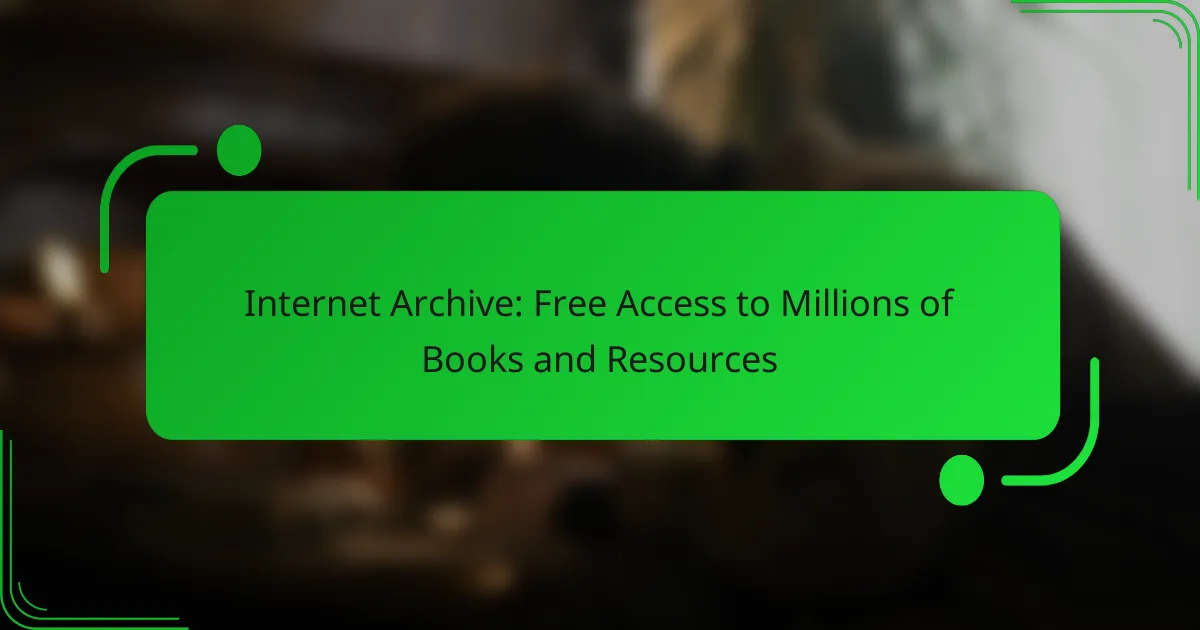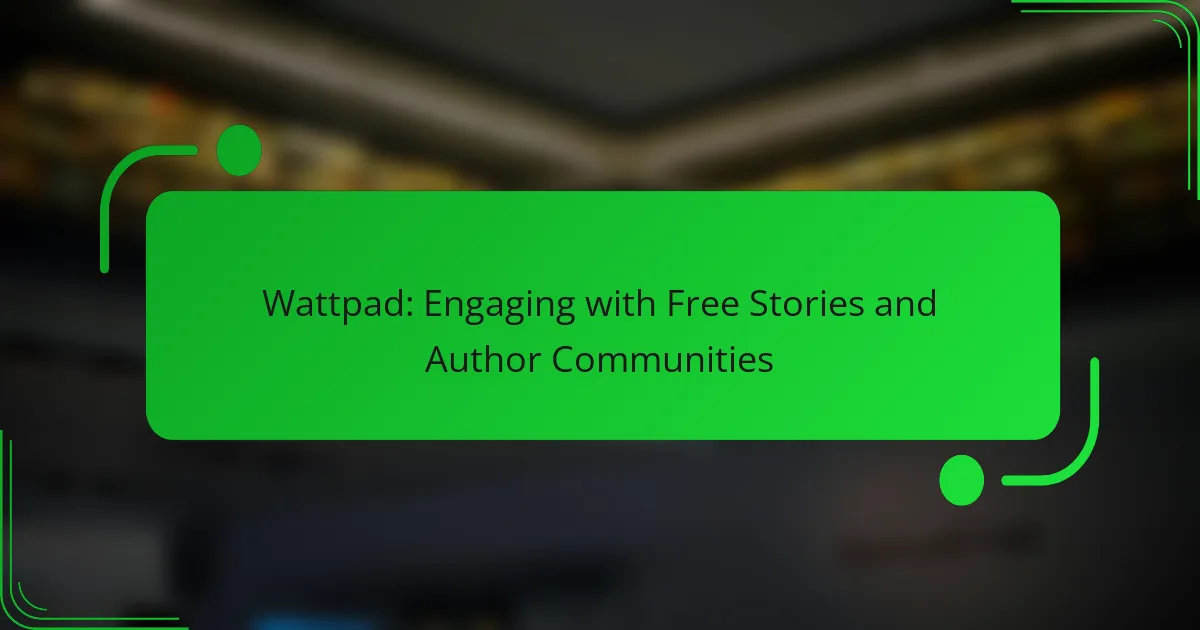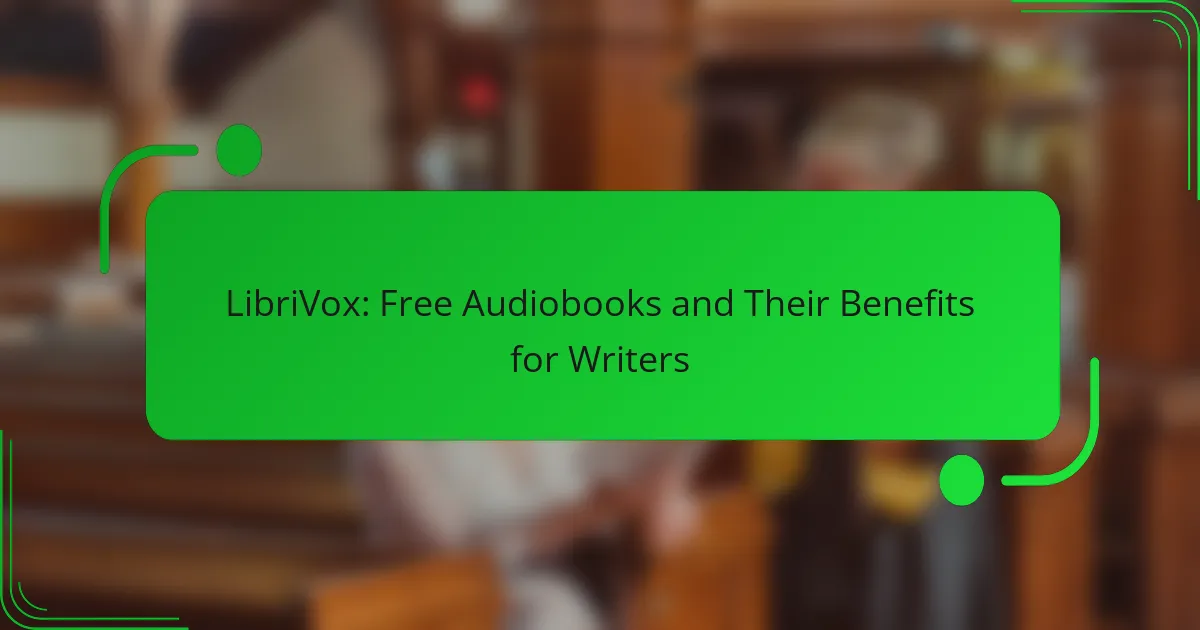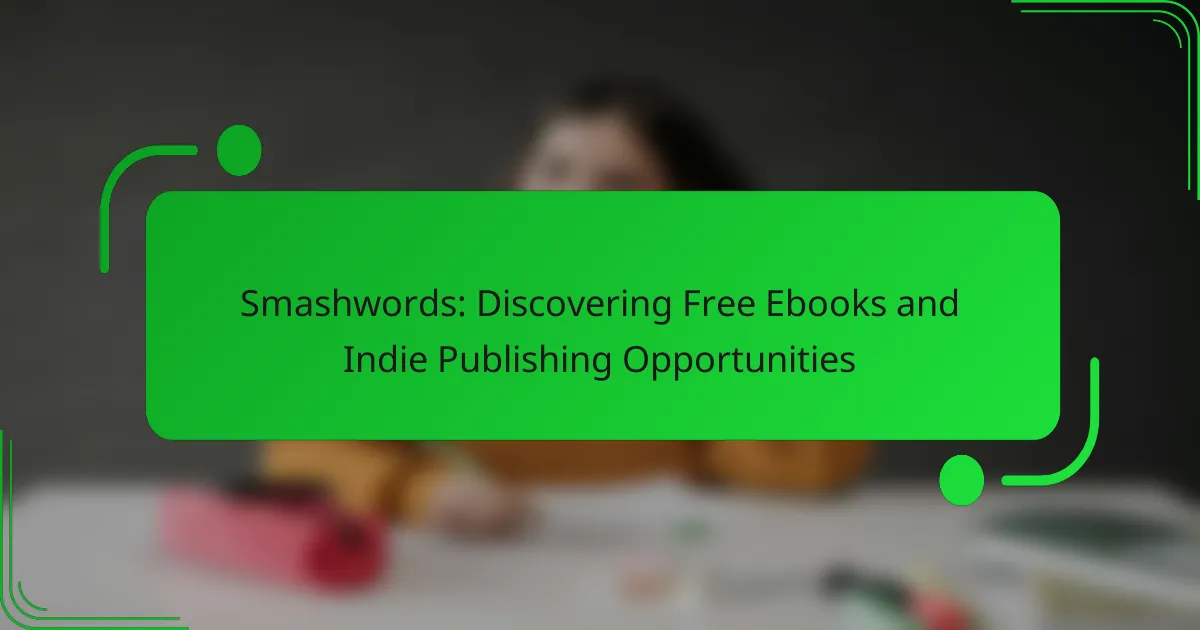Accessing quality academic literature can be challenging for indie authors. Project MUSE offers free access to a wide range of scholarly resources, including journals and books. This platform enhances research capabilities and supports diverse voices in academia. Indie authors can leverage its features to improve their writing and connect with the scholarly community.
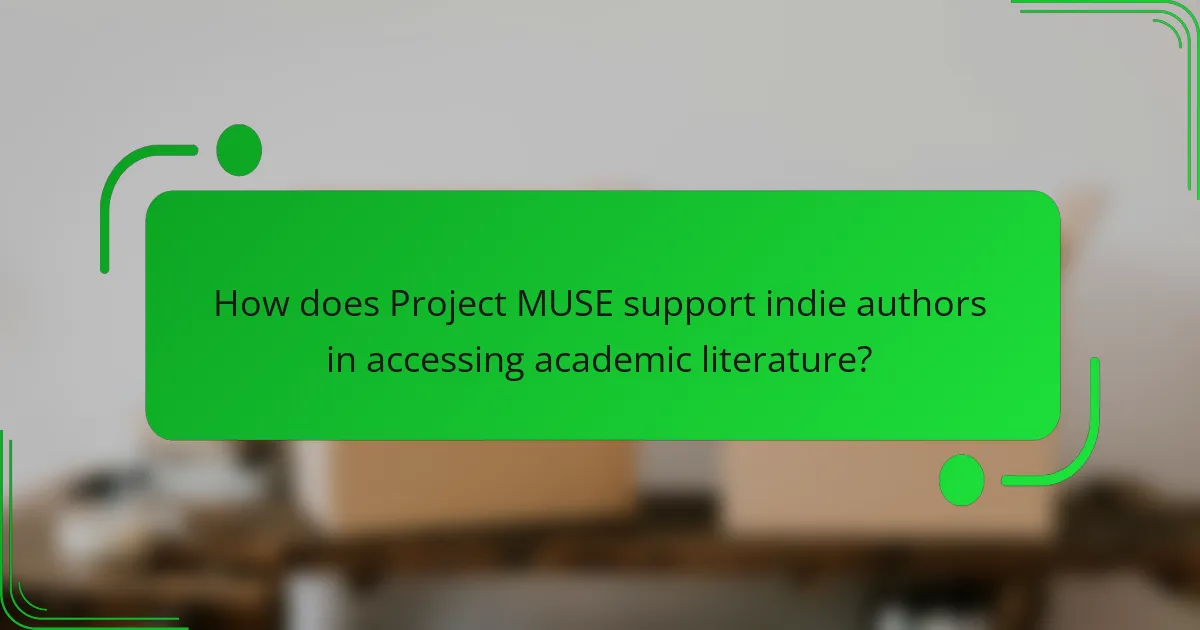
How does Project MUSE support indie authors in accessing academic literature?
Project MUSE provides indie authors with free access to a wide range of academic literature, enhancing their research capabilities. By offering open access content and affordable subscription options, it democratizes knowledge for independent writers. This initiative supports diverse voices in academia, allowing indie authors to engage with scholarly work that informs their writing. Additionally, Project MUSE collaborates with publishers to ensure a broad selection of materials, enriching the resources available to authors.
What are the primary features of Project MUSE for authors?
Project MUSE offers several key features for authors seeking to access free academic literature. It provides a vast database of scholarly content, including journals and books, which enhances research visibility. Authors can benefit from a user-friendly interface that simplifies navigation and access to resources. Additionally, Project MUSE supports open access initiatives, allowing authors to share their work widely without financial barriers. The platform also offers analytics tools for authors to track engagement with their publications, providing valuable insights into readership.
How is the content curated for quality and relevance?
Content for Project MUSE is curated through rigorous peer review and editorial oversight to ensure quality and relevance. This process involves evaluating research for originality, methodological soundness, and contribution to the field. The platform prioritizes academic integrity and accessibility, offering a diverse range of scholarly articles. Unique attributes include a focus on interdisciplinary studies and a commitment to supporting indie authors in accessing vital literature. As a result, Project MUSE provides a valuable resource that enhances scholarly communication and fosters innovation in research.
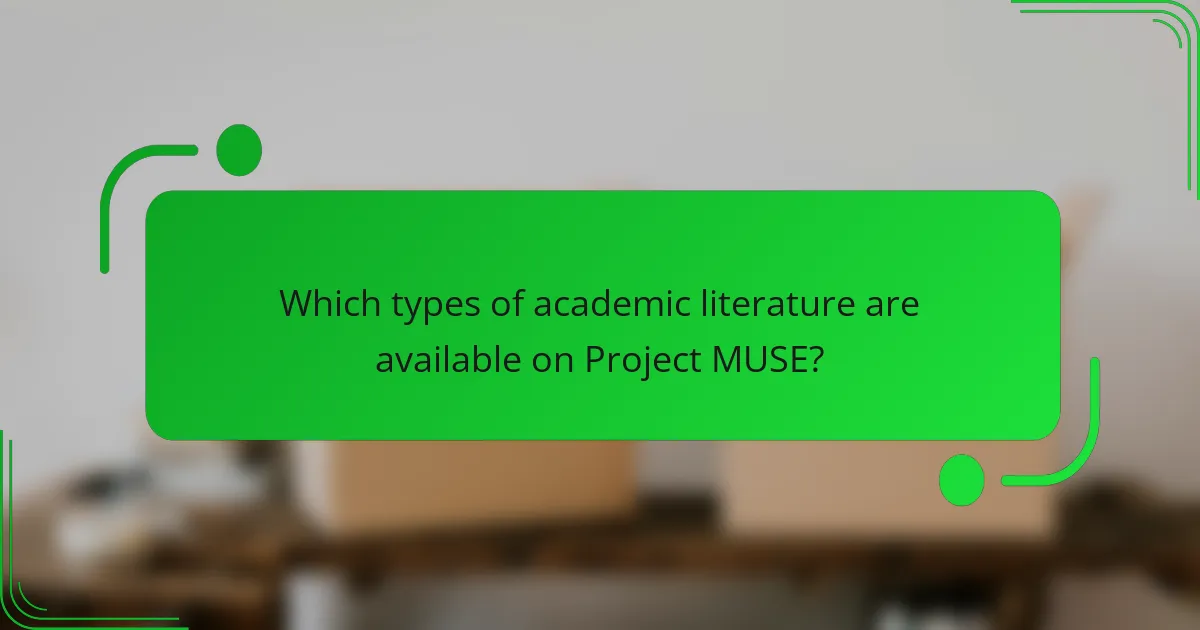
Which types of academic literature are available on Project MUSE?
Project MUSE offers various types of academic literature, including journals, books, and research articles. These resources are valuable for indie authors seeking reliable information. Journals provide peer-reviewed articles across disciplines, while books cover extensive topics in humanities and social sciences. Research articles often present original studies, enhancing knowledge in specific fields. Accessing these materials supports independent research and writing projects.
How does access to journals differ from books on the platform?
Access to journals on Project MUSE offers more frequent updates and research articles, while books provide comprehensive analyses and broader context. Journals often feature current studies and specialized topics, whereas books typically cover overarching themes and detailed discussions. This distinction allows indie authors to select resources that best fit their research needs.
What formats of literature can authors utilize from Project MUSE?
Authors can utilize various formats of literature from Project MUSE, including journal articles, book chapters, and monographs. These formats provide access to peer-reviewed academic content that supports research and writing. Project MUSE offers digital formats that enhance accessibility and usability for indie authors. Additionally, authors can explore multimedia content, such as videos and podcasts, which can complement traditional literature.
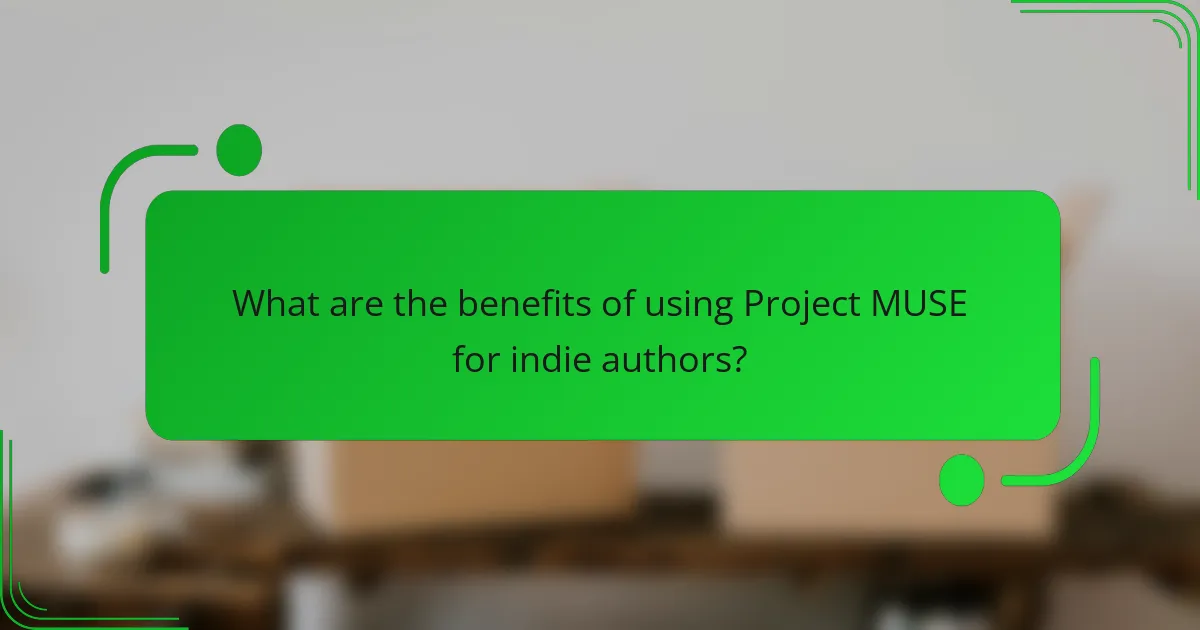
What are the benefits of using Project MUSE for indie authors?
Project MUSE provides indie authors with access to extensive academic literature, enhancing research and credibility. The platform offers free resources, which can improve the quality of writing and inform content development. Additionally, it connects authors to a scholarly community, fostering collaboration and feedback. This access can lead to unique insights that differentiate their work in a competitive market.
How does Project MUSE enhance research capabilities for authors?
Project MUSE enhances research capabilities for authors by providing access to a wealth of free academic literature. This platform connects indie authors to peer-reviewed journals and books, fostering a rich research environment. Authors can explore diverse disciplines, enhancing their understanding and supporting their writing. Collaborative tools and resources on Project MUSE facilitate efficient information retrieval, enabling authors to streamline their research process.
In what ways can indie authors leverage Project MUSE for their writing?
Indie authors can leverage Project MUSE to access a wealth of academic literature that enhances their writing. They can utilize peer-reviewed articles to inform their topics, discover new research trends, and cite credible sources to strengthen their arguments. Project MUSE also offers a platform for networking with scholars, which can lead to collaborations or feedback on their work. Additionally, exploring diverse disciplines available on the platform can inspire innovative ideas and unique perspectives in their writing.
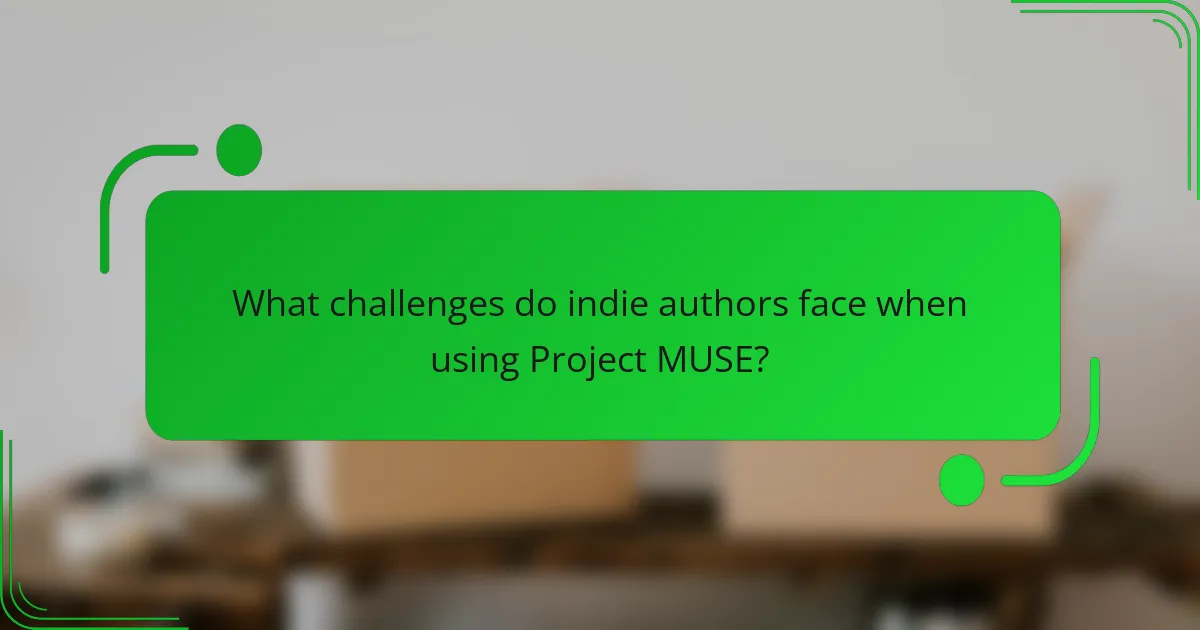
What challenges do indie authors face when using Project MUSE?
Indie authors face several challenges when using Project MUSE, including access limitations, navigation difficulties, and the need for institutional affiliations. Access to certain materials may be restricted, requiring authors to find alternative ways to obtain them. Navigation can be complex due to the vast amount of content, making it hard to locate relevant literature. Additionally, many academic resources on Project MUSE are behind paywalls, often necessitating connections with universities or libraries to gain full access.
How can authors overcome access limitations on the platform?
Authors can overcome access limitations on Project MUSE by utilizing institutional subscriptions, seeking interlibrary loans, and exploring open-access content. Institutional subscriptions provide broader access to a wealth of academic literature. Interlibrary loans allow authors to borrow materials not available in their local libraries. Open-access content on Project MUSE offers free access to select titles, ensuring that indie authors can still engage with valuable research.
What are common technical issues encountered by users?
Common technical issues users encounter with Project MUSE include access problems, slow loading times, and compatibility issues. Users often report difficulties in retrieving full-text articles due to institutional login errors. Slow performance may hinder the research process, particularly during peak usage times. Additionally, some users experience issues with browser compatibility, which affects their ability to view content properly. Understanding these issues can help indie authors navigate the platform more effectively.
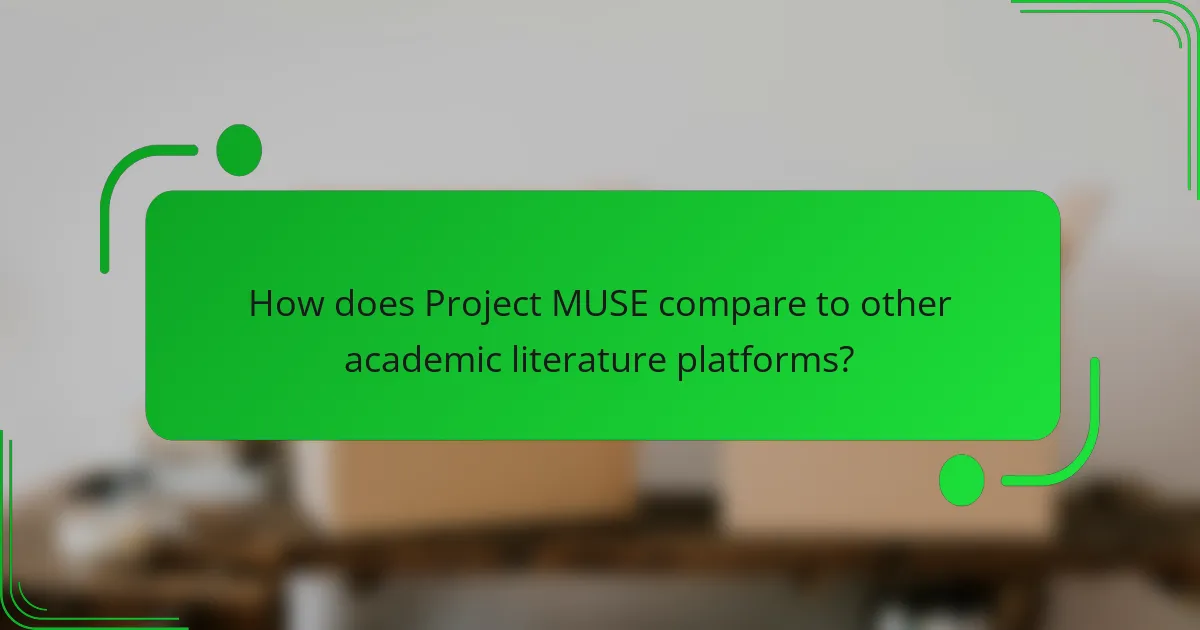
How does Project MUSE compare to other academic literature platforms?
Project MUSE offers a unique advantage over other academic literature platforms by providing free access to a diverse range of scholarly content tailored for indie authors. Unlike many subscription-based services, Project MUSE emphasizes accessibility, allowing authors to explore extensive resources without financial barriers.
In terms of content variety, Project MUSE hosts thousands of academic journals and books across various disciplines, which is comparable to platforms like JSTOR and SpringerLink, but with a stronger focus on humanities and social sciences. This makes it particularly valuable for indie authors seeking research material in these areas.
Moreover, Project MUSE supports open access initiatives, which aligns with the growing trend of making academic literature freely available. This contrasts with platforms that primarily operate on a paywall model, enhancing its appeal for authors who prioritize accessibility and affordability in their research endeavors.
Overall, Project MUSE stands out for its commitment to free access and its extensive collection of humanities and social science literature, making it a preferred choice for indie authors.
What unique attributes set Project MUSE apart from competitors?
Project MUSE distinguishes itself through its extensive collection of scholarly content, user-friendly interface, and robust support for indie authors. It provides access to a wide range of academic literature, including journals and books, which enhances visibility for independent researchers. The platform’s unique attribute is its focus on accessibility, offering many resources for free or at reduced costs. Additionally, Project MUSE emphasizes collaboration with academic publishers, ensuring a diverse and high-quality selection of materials.
Which platforms offer similar access to academic literature?
Platforms offering access to academic literature similar to Project MUSE include JSTOR, Google Scholar, ResearchGate, Academia.edu, and PubMed Central. These platforms provide a range of free and subscription-based academic resources.
| Platform | Access Type | Focus Area | Unique Feature |
|——————-|——————|——————————|———————————|
| Project MUSE | Subscription | Humanities and Social Sciences| Extensive collection of journals |
| JSTOR | Subscription | Multidisciplinary | Archival access to historical content |
| Google Scholar | Free | Multidisciplinary | Broad search across various sources |
| ResearchGate | Free | Various disciplines | Networking for researchers |
| Academia.edu | Free | Various disciplines | Profile creation for authors |
| PubMed Central | Free | Life Sciences and Medicine | Focus on biomedical literature |
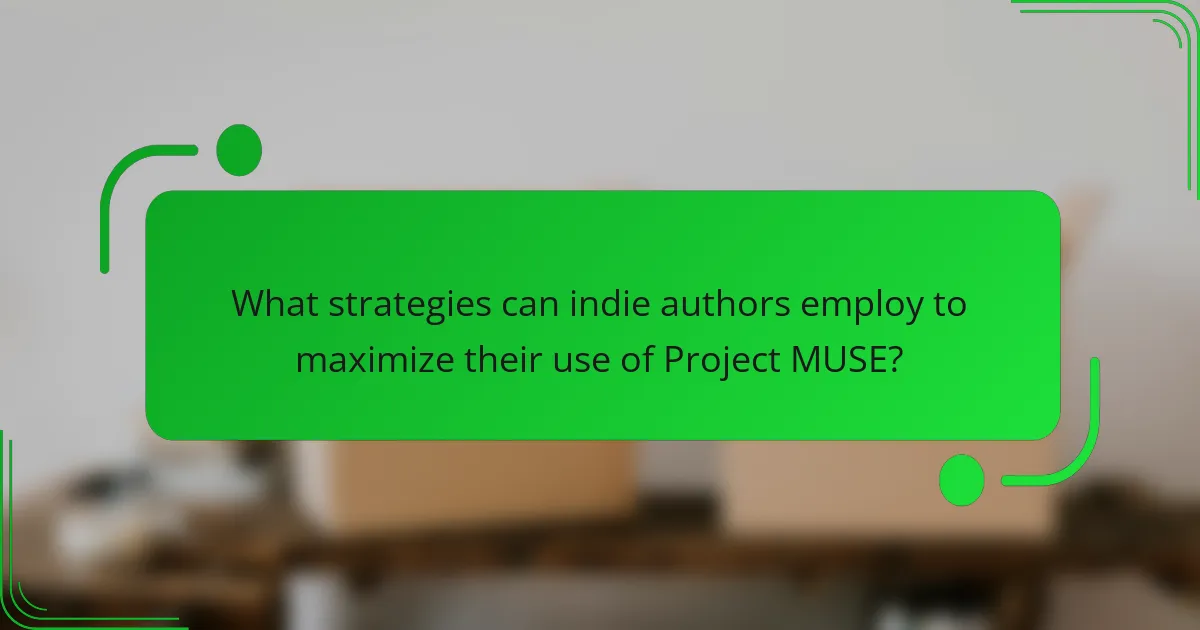
What strategies can indie authors employ to maximize their use of Project MUSE?
Indie authors can maximize their use of Project MUSE by leveraging its vast repository of academic literature for research and inspiration. First, authors should explore the advanced search features to find specific topics relevant to their writing. Next, they can utilize the citation tools to properly reference academic works, enhancing the credibility of their own writing. Additionally, joining discussions in relevant academic communities can provide networking opportunities and insights. Lastly, authors should keep track of new publications in their field to stay updated with current trends and scholarship.
What best practices should authors follow when navigating the platform?
Authors should focus on understanding the platform’s guidelines and utilizing available resources effectively. Key best practices include familiarizing themselves with Project MUSE’s content policies, leveraging search filters to find relevant literature, and engaging with the community for insights. Utilizing citation tools can enhance research accuracy. Staying updated on new publications and participating in webinars can further enrich their experience.
Which common mistakes should authors avoid when using Project MUSE?
Authors should avoid common mistakes like neglecting proper citation, misusing search tools, and overlooking the platform’s guidelines. These errors can hinder access to quality academic literature.
1. Failing to cite sources correctly can lead to plagiarism issues.
2. Not utilizing advanced search features limits the discovery of relevant materials.
3. Ignoring the terms of use can result in restricted access to content.
4. Overlooking the importance of peer-reviewed articles may compromise the quality of research.
